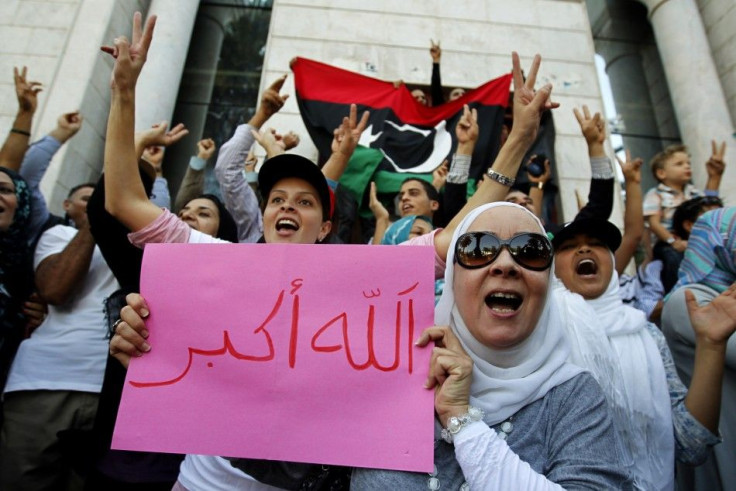Gadhafi’s Death Evokes Joy, Relief and Caution

Libya and much of the world is rejoicing over reports that former leader Moammar Gadhafi has died from injuries suffered during his capture in the town of Sirte.
UN Secretary General Ban Ki-Moon said in a statement this is only the end of the beginning. Now is the time for all Libyans to come together.”
He added that a time for healing and rebuilding and not for revenge, describing Gadhafi’s death as a historic transition for Libya.
Strangely, the British Prime Minister David Cameron – who was one of the strongest and earliest proponents of the NATO bombing campaign over Libya, issued a somewhat muted statement on Gadhafi’s death.
People in Libya today have an even greater chance after this news of building themselves a strong and democratic future, he said.
I'm proud of the role Britain has played and I pay tribute to the bravery of the Libyans who helped liberate their country. We should also remember the many Libyans who died at the hands of this dictator.”
Now the focus in Libya will surely move to the next step for the interim National Transitional Council (NTC) and the preparation for building a new country.
“It is difficult for Libyans to comprehend this liberating moment,” said David Hartwell, Senior Middle East and North Africa analyst at HIS.
“Gadhafi ran the country on an autocratic basis, with friends, family and confidents…. The key challenge in the future is the reconciliation process. There will be personnel changes within the Transitional National Council, but there will be challenges in bringing the many different groups into the fold. The democratic transition process will not be easy.
Hartwell added that Gadhafi’s end will also make the expiry of NATO’s mission in Libya.
“It is also likely to have major regional effects, emboldening anti-government movements in Syria and Yemen.”
Tim Ripley, senior analyst, IHS Jane's said he believes “The British government and other NATO allies will announce a major change to their contributions in Libya.
“A UK government official told IHS Jane's that this would likely trigger a new United Nations Security Council resolution to supersede the resolution that authorized military action against the Gaddafi regime in March,” he said.
Indeed, NATO said that its top military official, Supreme Allied Commander Admiral James Stavridis, will call for a special session to address the cessation of NATO mission in Libya, according to CNN.
“It will be very soon, perhaps next day or two. (Stavridis) will give a recommendation and a special session… will be convened, the official said.
Meanwhile, US Secretary of State Hilary Clinton spoke rather cautiously about Libya’s future.
“I think [his death] would bring a sigh of relief to a lot of Libyans, Clinton told Fox News. “If it is true, then that is one more obstacle removed. They have a very steep climb ahead of them ... to try to bring together Libya, build institutions, start on a new path to the future.
© Copyright IBTimes 2025. All rights reserved.





















